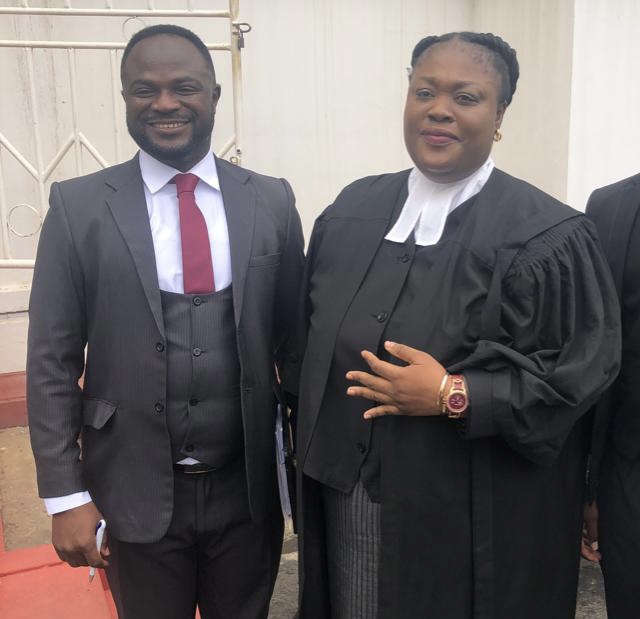
Deputy Speakers can vote: Supreme Court throws out review application
A review application challenging the Supreme Court’s decision that Deputy Speakers of Parliament can vote while presiding over proceedings and also be part of the quorum for decision-making in Parliament has failed.
In a unanimous decision yesterday, a nine-member panel of the apex court dismissed the review application on the basis that it failed to meet the criteria for review, as stipulated by the Supreme Court Rules, 1996 (C.I. 16).
“We are of the view that the application falls short of the threshold for review. The application is, therefore, dismissed as unmeritorious,” the court held.
The review panel was presided over by Justice Jones Dotse, with Justices Nene Amegatcher, Prof. Nii Ashie Kotey, Mariama Owusu, Avril Lovelace Johnson, Gertrude Torkornoo, Clemence J. Honyenuga, Prof. Henrietta Mensa-Bonsu and Emmanuel Yonny Kulendi as members.
Submissions
The applicant, Justice Abdulai, who was the plaintiff in the original suit, had argued that the Supreme Court’s judgment on March 9, 2022 contained “errors of laws which have occasioned a grave miscarriage of justice on the people of Ghana”.
It was his case that the apex court failed to take into consideration previous constitutions and other provisions of the 1992 Constitution which, according to him, barred any person presiding as Speaker from voting.
In her response, a Deputy Attorney-General (A-G), Diana Asonaba Dapaah, submitted that the 1992 Constitution was unique and ought to be interpreted taking into consideration its peculiarities and uniqueness.
According to her, non-references to previous constitutions when interpreting the 1992 Constitution was not a basis for review and, therefore, the application failed to meet the criteria for review.
It was her case that the review application failed to show any exceptional circumstances that had occasioned a miscarriage of justice or brought up any new information, which were the criteria for review.
“It is our opinion that the review application is unmeritorious and clear abuse of the process of this honourable court,” she submitted.
Judgment
In a unanimous decision on March 9, 2022, a seven-member panel of the court had held that a Deputy Speaker of Parliament presiding over proceedings in the House had the right to vote on matters for determination and also be counted as part of the quorum for decision-making.
Consequently, it ruled as valid the passage of the 2022 Budget by Parliament on November 30, 2021, during which the First Deputy Speaker, Joseph Osei-Owusu, who was presiding, had counted himself as part of the quorum that made that decision.
Also, the Supreme Court declared as unconstitutional Order 109 (3) of the Standing Orders of Parliament which barred a Deputy Speaker, who is presiding over proceedings, from voting on any issue for determination.
It was the considered view of the court that Deputy Speakers were Members of Parliament (MPs) elected as representatives of constituencies and, therefore, causing them to lose their casting vote would amount to disenfranchising their constituents in Parliament.
“To cause a member to forfeit his/her vote in Parliament merely on account of having to preside over the business of the House in the Speaker’s absence will unfairly disenfranchise not only the presiding member but also his/her constituents. Such an interpretation will likely give rise to certain perverse outcomes,” the court held.
According to the court, whereas Article 102 prevented any person presiding, either the Speaker or Deputy Speaker, from being part of the quorum for business of the House, Article 104(1) prevented only the person elected as Speaker, and not the deputies, from forming part of that quorum.
